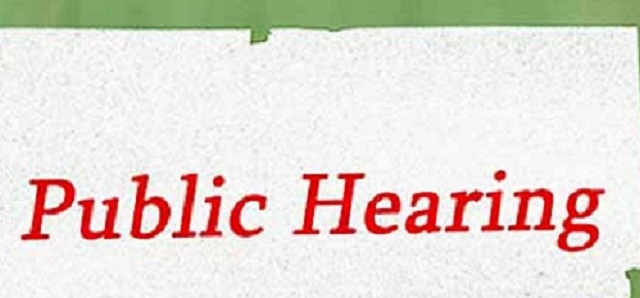EDITORIAL COMMENT: Educate people on importance of public hearings

In 1996, the Parliamentary Reform Committee recommended the opening up of Parliament to ordinary citizens and civil society through the establishment of various engagement avenues or platforms that include among others, the Parliamentary Portfolio and Thematic Committees.
There are 19 portfolio committees and these facilitate the engagement of Parliament with citizens in accordance with the Constitution.
These committees ensure that all interested parties including citizens are consulted by Parliament on bills and other relevant issues.
It is therefore important for members of the public to participate in public hearings conducted by PPCs so that they have an input in governance issues affecting them. Parliament’s public engagement has tremendously improved since the establishment of the PPCs. We are therefore disappointed to learn that a Public hearings meeting on two proposed laws that was scheduled for Gwanda town on Tuesday had to be cancelled after people failed to turn up.
The Parliamentary Portfolio Committee on Mines was supposed to conduct public hearings on Mineral Exploration and Marketing Corporation and Pan African University of Science and Technology Bills but was forced to cancel the meeting because of a poor turnout.
The committee’s chairman Daniel Shumba blamed the poor turnout to the failure to disseminate information on the hearing dates. He said to ensure that the people of Gwanda were not left out, they had been asked to send their contributions on the bills direct to Parliament. Shumba however said the information on the public hearings had been disseminated through local MPs, radio, television and newspapers but conceded that the information regarding specific hearings dates was probably not sent to the people hence the poor turnout. He said officials from the Ministry of Information, Media and Broadcasting Services and the District Administrator had been tasked to distribute copies of the bills to the people to enable them to make their contributions.
In Bulawayo the public hearings on the same bills attracted very few people and again the residents of Bulawayo were asked to submit their written contributions direct to Parliament. What happened in Gwanda and Bulawayo is a disturbing setback to the strides made so far in facilitating Parliament’s engagement with ordinary Zimbabweans.
A lot of resources have been committed to these public hearings meant to enable members of the public to have an input into Parliament’s legislative processes. It is therefore crucial to put in place mechanisms to mobilise citizens to attend these public hearings.
Government has on many occasions been accused of failing to adequately consult the people before coming up with policies or implementing programmes hence the decision by Parliament to establish various engagement avenues like PPCs.
These avenues will not achieve the intended objective as long as people do not participate. We want at this juncture to implore the entire leadership that include councillors, chiefs and MPs to assist in mobilising people to attend these public hearings. Parliament on its part should improve its communication to ensure information gets to the grass roots.
It is not enough to just advertise in newspapers, radio and television given that some parts of the country do not have access to such media. Parliament established Constituency Information Centres which, if probably run, could be very effective communication tools.
The involvement of people in the legislative process enhances participatory democracy and should therefore be encouraged.
The challenge therefore is to ensure that Parliament’s engagement platforms achieve their intended objective.











Comments